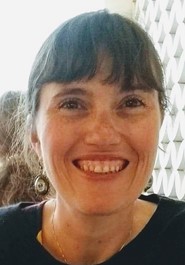Government Statistical Service (GSS) Conference 2022
- Date
- From 13th December 2022 9:00 am to 14th December 2022 5:00 pm
- Venue
- The Midland Hotel, 16 Peter Street, Manchester, M60 2DS
Changing Statistics for a Changing World
The Official Event Partner for the GSS Conference 2022 is The Sensible Code Company.
Whether it has been a few years since you joined the GSS community or you are a completely new member, the conference will be a great opportunity to step away from your desk and find out what other people are working on. This could be things like:
- finding new ways of gathering and cleaning data — for example, improving data validation at point of entry
- upgrading the analysis behind the published statistical — for example, identifying statistically significant trends and relationships using Data Science
- working on better dissemination — for example, looking into what R or Power BI can do
It will also be an opportunity to network with like-minded colleagues. You will be able to speak to other people about what training and career development they have been involved in and how it helped them.
You can read the GSS Conference Handbook for more information about the event (ODT, 3.43MB).
Details of the event
The conference will run for two days and includes:
- keynote speakers
- presentations at parallel sessions
- a panel session
- posters of the work of members of the GSS
- a chance to meet the conference sponsors
- an evening meal
The theme of the conference is “changing statistics for a changing world”. The keynote addresses and parallel session will to a certain extent, reflect this theme.
How to attend
Each department has been notified of their number of delegate spaces available to them and is looking for expressions of interest from the GSS and the wider analytical community to attend the conference.
If you are interested in attending, contact your statistical Head of Profession (HoP) as soon as possible. HoPs have been asked to submit their list of attendees by 5pm on Tuesday 1 November 2022.
There is no charge for attending the conference event but delegates and departments are responsible for transport and accommodation arrangements. You may wish to note that the conference rate for the Midland Hotel is £159 per night, or £95 per night if you can book through the Civil Service booking system. Other nearby hotels include Jury’s Inn at £119 per night.
Keynote speakers
Sir Robert Chote has been Chair of the UK Statistics Authority since June 2022. He is also serving part-time as the first chair of the Northern Ireland Fiscal Council and chairs the external advisory group of the Parliamentary Budget Office in the Republic of Ireland. Before this Robert was head of the Office for Budget Responsibility and the Institute for Fiscal Studies, and was Economics Editor of the Financial Times and the Independent. Robert was knighted in the 2021 New Year Honours list for services to fiscal policy and the economy.
Sir Robert is particularly interested in the topic of statistics for the public good.
Sir Robert will be delivering the conference opening speech.
Professor Sir Ian Diamond is the UK’s National Statistician and Head of National Statistics Board (ONS). Ian was the chair of the Social Security Advisory Committee (SSAC) from August 2018 to August 2019. He was knighted in 2013 for his services to social science and higher education. Sir Ian was the Principal and Vice Chancellor of the University of Aberdeen until 31 July 2018.
Sir Ian is particularly interested in the topic of statistical integrity. You can hear Sir Ian’s take on the data revolution on the ONS ‘Statistically Speaking’ podcast.
Sir Ian will deliver the first keynote speech of the conference.
Ed Humpherson was appointed as Director General for Regulation in October 2013 and took up post in January 2014. He is head of the Office for Statistics Regulation which provides independent regulation of all official statistics in the UK. The aim of OSR is to enhance public confidence in the trustworthiness, quality and value of statistics produced by government.
Before joining the Authority, Ed was a Board Member and Executive Leader for Economic Affairs at the National Audit Office, a post he held since July 2009. This role included responsibility for the overall strategic direction of NAO’s work on economic affairs.
Ed is particularly interested in the topic of statistics governance, regulation and state interaction with the market sector. This includes work to prevent the misuse of statistics.
Ed will deliver the third keynote speech, which is called “‘Walls come tumbling down’: how the pandemic era has led to the erosion of boundaries for statistics and how this creates new challenges”.
Professor Alison Park is Executive Chair of the ESRC and Senior Responsible Officer (SRO) for ADR UK. Alison joined ESRC as Director of Research in January 2019. Before joining ESRC she was Professor of Social Research and Director of Cohort and Longitudinal Studies Enhancement Resources (CLOSER). Professor Park was awarded a CBE for services to social sciences in the 2018 New Year Honours and is a Fellow of the Academy of Social Sciences.
Alison is particularly interested in promoting research partnerships across sectors, including academia and government. Read Alison’s blog contribution to learn 5 things you didn’t know about ESRC.
Professor Park will deliver a joint keynote speech with Emma Gordon, setting out the wider ESRC case and its role in data and statistics.
Dr Emma Gordon is Director of the ADR UK Strategic Hub and Director of ADR England. She is responsible for setting the strategic direction for the programme, leading on the coordination of the partnership and engagement with senior stakeholders, to improve access and analysis of administrative data to inform policy decisions. She is also part of the ADR UK Leadership Committee. Emma joined ADR UK from HM Treasury, where she led the team supporting government economists and social researchers across government. Before this, Emma was Head of Health Analysis at the Office for National Statistics (ONS), and at the start of her career was a post-doctoral researcher on the Avon Longitudinal Study of Parents and Children.
Emma is particularly interested in improving access to administrative data and supporting better evidence for policy. You can watch Emma talk about the work of ADR UK and administrative data.
Dr Gordon will deliver a joint keynote speech with Alison Park, covering the specific work of ADR UK.
Robert Cuffe heads up of the statistics team for BBC news. Before that he worked on HIV drug trials at GlaxoSmithKline and was head of statistics at ViiV Health Care. Robert is a statistical ambassador for the Royal Statistical Society and was chairman of the UK pharmaceutical statistician’s industry body PSI. Whilst in this role he worked with the Science Media Center to set up a briefing service for the Lay Science Press.
Robert is particularly interested in health statistics and improving the communication of statistics.
Robert will deliver the final keynote speech of the conference.
Parallel Sessions
The ‘parallel session’ presentations are an excellent opportunity to find out about the work happening in the GSS. You will hear about:
- how statistics are helping people live their lives in our changing world
- how analysts have changed your processes to produce more relevant and up-to-date statistics
- the effect your statistics have had on a national or international scale
In total there will be 17 presentations from GSS members, spanning 12 Government departments, as well as presentations from our 3 sponsors, The Sensible Code Company, Jumping Rivers and SAS Software. You can find the details and blurbs for each talk in the programme of parallel sessions.
We have three sponsors for the conference:
Official Event Partner: The Sensible Code Company
The Sensible Code Company makes products that modernise the processing and dissemination of data. Their product Cantabular facilitates flexible dissemination with real time privacy protection and integrated metadata, improving reproducibility, eliminating errors and enabling innovative publication tools. It is being used by the ONS to publish census 2021 data.

Conference Gold Sponsor: SAS Software
SAS is the global leader in AI and analytics, delivering intelligent, automated solutions that help UK government effectively transform data into intelligence.
Their technology is designed to empower and inspire how government departments operate, improving the processes and quality of data-driven decision-making. Working collaboratively with other technologies, SAS cloud-resident analytics and AI platform supports diversity, enables scale and promotes trust in government.

Jumping Rivers

Jumping Rivers is an analytics company specialising in creating bespoke solutions for modern business problems. Their team of data science and engineering experts come from many different backgrounds, and their wealth of knowledge and experience allows them to think outside the box and solve problems in new and innovative ways.
Meet the team
Eleanor Cuzner
Eleanor Cuzner is based in Bournemouth and works for the Office for National Statistics (ONS).
Favourite random statistic
90% of the world live in the Northern Hemisphere
Favourite, or most hated type of data visualisation or chart
Going back to my days working on the census, my favourite has to be a population pyramid.
Fun fact about Eleanor
I was at the women’s Euros final when football came home!
Mingqing Wu
Mingqing Wu is based in London and works for the ONS.
Favourite random statistic
177,000 people declared themselves ‘Jedi’ under the religion section in the 2011 census, making it the seventh most popular religion.
Favourite chart type
A line chart. Simple but effective, in most cases.
Fun fact about Mingqing
According to my friends, I am very good at thumb wrestling!
Narayan Jayaram
Narayan works for the Department for Work and Pensions (DWP).
Cheena Ghataoura
Cheena Ghataoura is based in London and works for the Department for Education (DfE).
Favourite random statistic
This is not really related to statistics, but applications of Artificial Intelligence (AI) have always fascinated me. One of the applications which still baffles me is how robots can judge a beauty contest! This is where robots are trained to detect face symmetry and features, including wrinkles, skin health, ageing factor, and other related factors. Humans take a photo of themselves and submit it to the robot for evaluation based on data that has already been supplied to them. The robots can detect and analyse the data online. It supports the robotic jury in comparing the results and finalising Beauty Queen and King.
Favourite, or most hated type of data visualisation or chart
One of my favourite visuals are Sankey diagrams.
Fun fact about Cheena
I once met Kunal Nayyar who plays Raj on “The Big Bang Theory”. We were on the same flight.
Ben Peters
Ben Peters is based in London and works for the Department for Business, Energy & Industrial Strategy (BEIS).
Favourite random statistic
British people drink 100 million cups of tea a day. By comparison, British people only drink 70 million cups of coffee each day. I’m pleased to see we’re still a nation that likes to drink tea!
Most hated type of data visualisation or chart
Word clouds, or more specifically word clouds that include conjunctions and pronouns.
Fun fact about Ben
I’ve lived in three continents over my life.
Kitty Dadds
Kitty Dadds is based in London and works for the Department for Transport (DfT).
Favourite random statistic
You can fit all the planets in our solar system between the Earth and the Moon!
Fun fact about Kitty
My name is actually Kathryn.
Tara Smith
Tara Smith is based in London and works for the Department for Transport (DfT).
Favourite random statistic
There are approximately 10,000 stars for each grain of sand on Earth.
Most hated type of data visualisation or chart
Donut charts.
Fabiana Macor
Fabiana Macor is based in London and works for the Ministry of Justice (MoJ).
Favourite random statistic
I am yet to find my favourite random statistic.
Favourite, or most hated type of data visualisation or chart
It depends! I hate numbers without context. I love using dynamic data to present dynamic trends. Try looking at the income mobility animation from the New York Times to enter a trance.
Fun fact about Fabiana
I completed the Coast to Coast challenge as a teenager. I travelled from the East coast of England to the West coast by bike. Bu this was before my gradual descent into my now fairly sedentary lifestyle!
Oluwakemi Imole Adewumi
Oluwakemi Imole Adewumi is based in London and works for the Department for Work and Pensions (DWP).
Favourite random statistic
Standard deviation.
Favourite, or most hated type of data visualisation or chart
Pie chart.
Fun fact about Oluwakemi
I cook when I am stressed.
Michael Nairn
Michael Nairn is based in Newport and works for the Office for National Statistics (ONS).
Favourite random statistic
Over 90% of all plant and animal species found in Madagascar are endemic.
Favourite, or most hated type of data visualisation or chart
Radar plots.
Fun fact about Michael
My former job involved firing lasers at billion year-old rocks.
Beth Cunningham
Beth Cunningham is based in Manchester and works for the Department for Education (DfE).
Favourite random statistic
A quarter of British people between the ages of 25 and 34 eat chocolate daily. I can’t believe it’s only a quarter!
Most hated type of data visualisation or chart
Area charts. There’s just something about all the blocks of colour in one chart that I really don’t like!
Fun fact about Beth
In my spare time I go to aerial hoop classes.
Jack Bedford
Jack Bedford is based in London and works for HM Revenue and Customs (HMRC).
Favourite random statistic
The word ‘the’ is the most frequently used word in the country, despite not being used at all across the whole of West Yorkshire.
Favourite type of data visualisation or chart
Pretty basic, but you cannot go wrong with a line chart!
Fun fact about Jack
I am trying to learn Greek!
Henry Watson
Henry Watson is based in London and works for the Department for Work and Pensions (DWP).
Favourite random statistic
There are more ways to arrange a deck of cards than there are atoms on Earth.
Most hated type of data visualisation or chart
Not the biggest fan of pie charts.
Fun fact about Henry
I’m originally from the Isle of Man.
Zarrin Pudney

Zarrin Pudney is based in Cardiff and works for Welsh Government.
Favourite random statistic
Cheese is the most frequently stolen food in the world. 4% of all cheese ended up being stolen in 2011.
Most hated type of data visualisation or chart
What’s worse than a pie chart? A 3D pie chart with a ‘z’ axis value so some ‘slices’ aren’t even visible! Yes, these things actually exist.
Fun fact about Zarrin
I make jewellery in my spare time. I even made my own wedding and engagement rings!
Ian Hillis
Ian Hillis is based in London and works for the Service Complaints Ombudsman for the Armed Forces.
Favourite random statistic
Measures of happiness are some of the least quoted statistics, despite being one of the most important aspects of life.
Favourite type of data visualisation or chart
Pie charts. They are popular amongst the general population and at least your statistic will be read.
Fun fact about Ian
I support Nottingham Forest football club. They were recently promoted after 25 years, so I am praying they avoid relegation after one season.
Camilla Somers

Camilla Somers is based in Glasgow and works for Public Health Scotland.
Favourite random statistic
Human DNS is 60% the same as bananas…yes, the fruit!
Most hated type of data visualisation or chart
I hate area charts when they are misused!
Fun fact about Camilla
I have been to the Arctic Circle twice.
Contact us
If you have any questions about the conference, please email the team at GSS@statistics.gov.uk.
